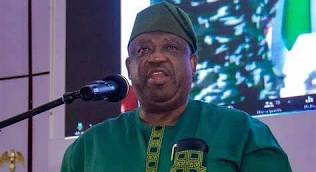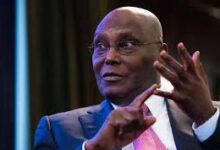
With the rise of “America First,” African nations must rethink their approach to engaging with the United States, argues Professor Jeremy Ghez.
Ghez gave this insight during the Nairametrics Nigeria Economic Outlook 2025 Focus: Exchange Rate, Interest Rate, Economic Growth, Geopolitics, he urged African nations to adapt to America’s evolving foreign policy, which now prioritizes domestic economic benefits over traditional diplomatic compromises.
Ghez outlined how the U.S. has transitioned from compromise-driven diplomacy to a power-centric, transactional model.
Referencing Donald Trump’s, The Art of the Deal, Ghez describes a negotiation style that thrives on arm wrestling rather than consensus-building.
He emphasizes that this ideology represents a broader American pivot towards prioritizing domestic economic benefits in global engagements.
“This is about business and economic prospects,” he says, highlighting that transnationalism, not protectionism, defines the current U.S. stance.
Ghez calls on African leaders to respond strategically. Drawing lessons from China’s dealings with Trump, he suggests African nations would benefit from unity in negotiations.
“The key for African partners is to find a core set of shared interests to push forward as a bloc,” Ghez advises.
The stakes are high, he notes, as economic priorities dominate U.S. foreign policy, sidelining broader security guarantees.
“If you want this, you must get that,” Ghez says, underscoring the importance of clarity and leverage in negotiations,” she noted.
Ghez reflects on a changing America, one less willing to compromise and more focused on transactional outcomes.
For African leaders, the message is clear: adapt to the rules of this new game or risk being sidelined in the global power struggle.
Concerns loom over AGOA renewal amid changing U.S. policies
- As the African Growth and Opportunity Act (AGOA) nears its 2025 expiration, Margaret Olele, CEO of the American Business Council, also expressed concerns over potential renegotiations under evolving U.S. policies.
- Speaking on Nigeria’s trade opportunities, Olele stressed that AGOA remains a lifeline for many African nations, including Nigeria, in maintaining export relationships with the U.S.
“The fear of higher tariffs or reduced trade benefits under an ‘America First’ policy is palpable,” Olele said. “The current administration’s anti-China stance, however, may still create opportunities for U.S. private sector-driven projects in Nigeria.”
Since its inception during the Trump administration, AGOA has facilitated 152 deals worth $86 billion in exports to Africa.
Olele called on Nigeria to strengthen its economic fundamentals to remain competitive in future U.S. trade policies.





